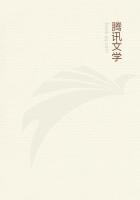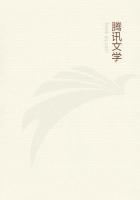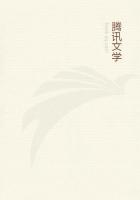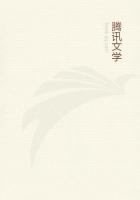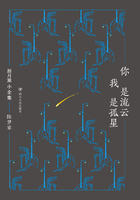The manner and system which Boehme adopts must accordingly be termed barbarous; the expressions used in his works prove this, as when, for example, he speaks of the divine Salitter, Marcurius, &c. As Boehme places the life, the movement of absolute existence in the heart, so does he regard all conceptions as being in a condition of actuality; or he makes use of actuality as Notion, that is to say he forcibly takes natural things and sensuous qualities to express his ideas rather than the determinations of the Notion. For instance, sulphur and suchlike are not to him the things that we so name, but their essence; or the Notion has this form of actuality. Boehme's profoundest interest is in the Idea and he struggles hard to express it. The speculative truth which he desires to expound really requires, in order to be comprehended, thought and the form of thought. Only in thought can this unity be comprehended, in the central point of which his mind has its place; but it is just the form of thought that is lacking to him. The forms that he employs are really no longer determinations of the Notion at all. They are on the one hand sensuous, chemical determinations, such qualities as acid, sweet, sour, fierce; and, on the other, emotions such as wrath and love; and, further, tincture, essence, anguish, &c. For him these sensuous forms do not, however, possess the sensuous significance which belongs to them, but he uses them in order to find expression for his thought. It is, however, at once clear to us how the form of manifestation must necessarily appear forced, since thought alone is capable of unity. It thus appears strange to read of the bitterness of God, of the Flagrat, and of lightning; we first require to have the Idea, and then we certainly discern its presence here. But the other side is that Boehme utilizes the Christian form which lies nearest to him, and more especially that of the Trinity, as the form of the Idea: he intermingles the sensuous mode and the mode of popularly conceived religion, sensuous images and conceptions. However rude and barbarous this may on the one hand be, and however impossible it is to read Boehme continuously, or to take a firm grasp of his thoughts (for all these qualities, spirits and angels make one's head swim), we must on the other hand recognize that he speaks of everything as it is in its actuality, and that he does this from his heart. This solid, deep, German mind which has intercourse with what is most inward, thus really exercises an immense power and force in order to make use of actuality as Notion, and to have what takes place in heaven around and within it. Just as Hans Sachs represented God, Christ and the Holy Ghost, as well as patriarchs and angels, in his own particular manner and as ordinary people like himself, not looking upon them as past and historic, so was it with Boehme.
To faith spirit has truth, but in this truth the moment of certainty of self is lacking. We have seen that the object of Christianity is the truth, the Spirit; it is given to faith as immediate truth. Faith possesses the truth, but unconsciously, without knowledge, without knowing it as its self-consciousness; and seeing that thought, the Notion, is necessarily in self-consciousness - the unity of opposites with Bruno - this unity is what is pre-eminently lacking to faith. Its moments as particular forms fall apart, more especially the highest moments - good and evil, or God and the Devil. God is, and the Devil likewise; both exist for themselves. But if God is absolute existence, the question may be asked, What absolute existence is this which has not all actuality, and more particularly evil within it? Boehme is hence on one side intent on leading the soul of man to the divine life, on inducing the soul to pay attention to the strife within itself, and make this the object of all its work and efforts; and then in respect of this content he strives to make out how evil is present in good - a question of the present day. But because Boehme does not possess the Notion and is so far back in intellectual culture, there ensues a most frightful and painful struggle between his mind and consciousness and his powers of expression, and the import of this struggle is the profoundest Idea of God which seeks to bring the most absolute opposites into unity, and to bind them together - but not for thinking reason. Thus if we would comprehend the matter, Boehme's great struggle has been - since to him God is everything - to grasp the negative, evil, the devil, in and from God, to grasp God as absolute; and this struggle characterizes all his writings and brings about the torture of his mind. It requires a great and severe mental effort to bring together in one what in shape and form lie so far asunder; with all the strength that he possesses Boehme brings the two together, and therein shatters all the immediate significance of actuality possessed by both. But when thus he grasps this movement, this essence of spirit in himself, in his inward nature, the determination of the moments simply approaches more nearly to the form of self-consciousness, to the formless, or to the Notion. In the background, indeed, there stands the purest speculative thought, but it does not attain to an adequate representation. Homely, popular modes of conception likewise appear, a free outspokenness which to us seems too familiar. With the devil, particularly, he has great dealings, and him he frequently addresses. “Come here,” he says, “thou black wretch, what dost thou want? I will give thee a potion.”(5) As Prospero in Shakespeare's “Tempest”(6) threatens Ariel that he will “rend an oak and peg him in his knotty entrails . . . twelve winters,” Boehme's great mind is confined in the hard knotty oak of the senses - in the gnarled concretion of the ordinary conception - and is not able to arrive at a free presentation of the Idea.

